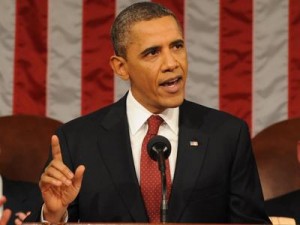The Politics of Resentment
 Last month, President Barack Obama declared that “the private sector is doing fine.” Last week, he claimed that his main first-term mistake was a mere failure to “tell a story to the American people.” But Obama’s biggest blunder of the summer may be the bizarre claim he made at a campaign rally in Virginia last Friday: “If you’ve got a business, you didn’t build that. Somebody else made that happen.”
Last month, President Barack Obama declared that “the private sector is doing fine.” Last week, he claimed that his main first-term mistake was a mere failure to “tell a story to the American people.” But Obama’s biggest blunder of the summer may be the bizarre claim he made at a campaign rally in Virginia last Friday: “If you’ve got a business, you didn’t build that. Somebody else made that happen.”
The remark left millions of American entrepreneurs scratching their heads — and more than a few probably scratching any plans they had to vote for Obama.
The president’s defenders have spent the past week scrambling to explain what our illustrious orator in chief really meant. Read the quote in context, they have urged, and you will see that Obama is simply promoting the common-sense notion that entrepreneurs need others to succeed.
But Obama’s remarks went considerably farther than that. Consider his full quote:
“Look, if you’ve been successful, you didn’t get there on your own. You didn’t get there on your own. I’m always struck by people who think, well, it must be because I was just so smart. There are a lot of smart people out there. It must be because I worked harder than everybody else. Let me tell you something — there are a whole bunch of hardworking people out there. If you were successful, somebody along the line gave you some help. There was a great teacher somewhere in your life. Somebody helped to create this unbelievable American system that we have that allowed you to thrive. Somebody invested in roads and bridges. If you’ve got a business — you didn’t build that. Somebody else made that happen. The Internet didn’t get invented on its own. Government research created the Internet so that all the companies could make money off the Internet. The point is, is that when we succeed, we succeed because of our individual initiative, but also because we do things together.”
Few would argue against the logic of that last line. Of course, successful entrepreneurs, like all Americans, benefit from the help of others: their spouses, parents, friends, business partners, employees, mentors, teachers and pastors. Most of them readily acknowledge that.
Yet in Obama’s vision, an entrepreneur owes his primary debt of gratitude not to his fellow citizens or to God but to government. And any hesitation entrepreneurs have about surrendering ever larger slices of their paychecks to their profligate Uncle Sam — as Obama would have them do, under his plan to repeal the Bush tax cuts for families earning $250,000 or more — is mere evidence of their miserliness.
That many Americans believe in the value of community and charitable giving even as they worry about the growth of government during Obama’s tenure seems lost on the president. Equally lost on him is the idea that while citizens have a right to expect such vital public services as fire protection and the construction of passable roads from their government, they also have a right to object when government insists on doing for citizens things they can and should do for themselves — and amasses exponentially more power in the process.
Obama’s remarks hint at a world in which citizens have only two choices: Either embrace the all-powerful, all-beneficent state or renounce your right to 911 calls and move off the grid. It’s a crude vision that makes as much sense as arguing that successful business owners must credit Uncle Sam for their achievements because they drive to work on public roads — the same roads driven by failed business owners and those too timid to risk starting businesses in the first place.
Obama appears genuinely ignorant of the crucial role that creativity, initiative and hard work play in entrepreneurial success. He stubbornly insists on conflating equality of opportunity with equality of outcome. And he forgets that the very business owners he castigates as ungrateful and selfish are job creators who fill the government’s coffers and thus make its provision of public services possible. Rather than sneering at their success, the president ought to focus on praising, replicating and expanding it.
But doing that would force Obama to abandon his main strategy for winning reelection: relentless, hyperbolic attacks on former Massachusetts Gov. Mitt Romney’s record of business success. If the president stopped fomenting class envy and turned the national conversation toward expanding economic opportunity, voters might notice how little Obama himself has accomplished in that regard.
Better to rile up crowds with attacks on those rich so-and-sos who succeed while “keeping other folks down,” as Obama put it during an Ohio rally on Monday. It’s a crass and cynical ploy, particularly coming from the erstwhile candidate of hope and change. But desperate times call for desperate measures. With approval ratings that have hovered below 50 percent for the better part of three years, and Election Day less than four months away, Obama may be desperate, indeed.

